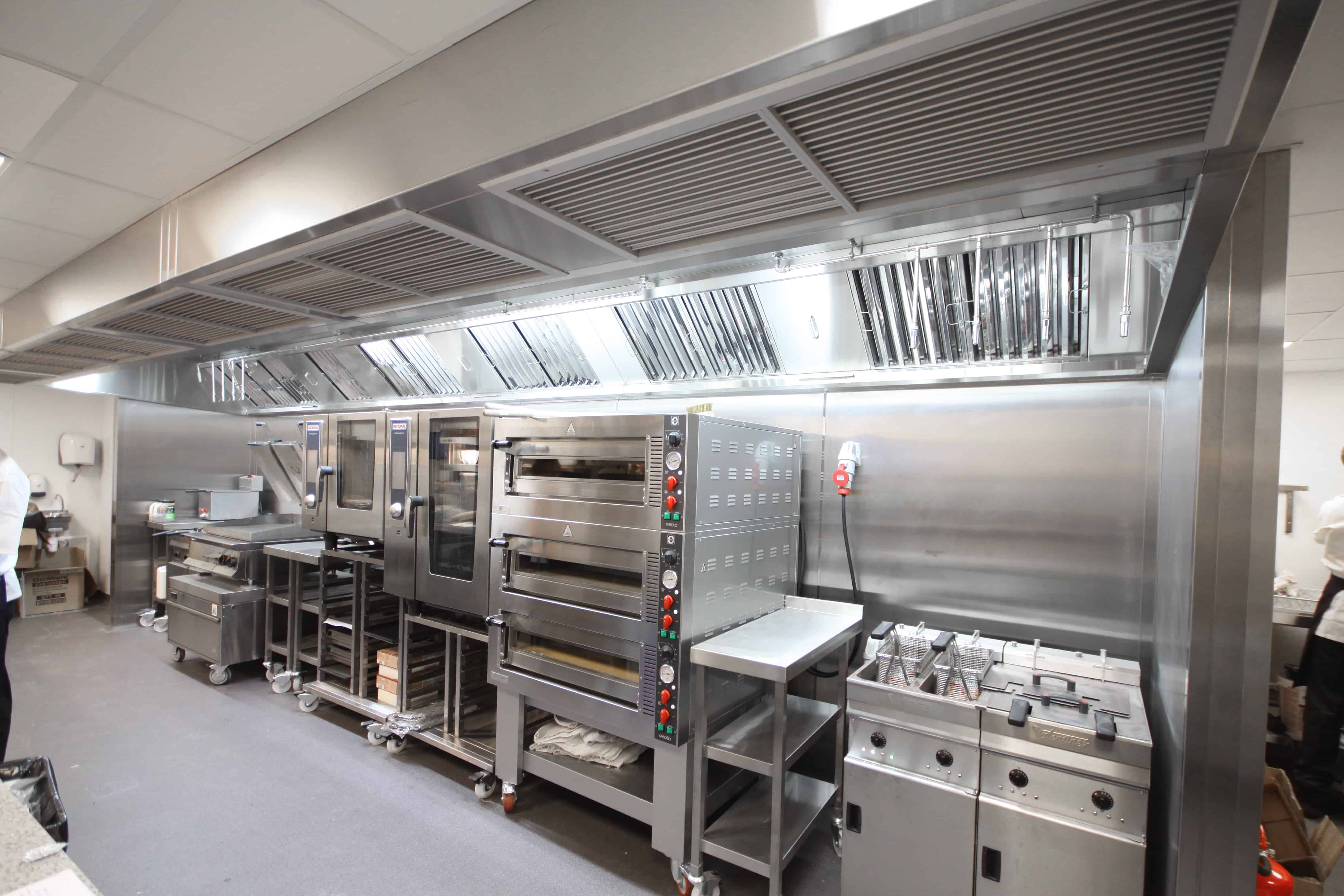Ventilation systems play a big role in busy commercial kitchens, and as such, all kitchens are subject to extraction regulations. This article will explore the type of ventilation which is required in these busy cooking spaces and the regulations surrounding it.

Is Ventilation a Requirement for Commercial Kitchens?
Yes, ventilation is a requirement for commercial kitchens. Proper ventilation is essential to remove heat, smoke, odours, and pollutants generated during cooking processes. Without it, these byproducts can lead to an uncomfortable working environment for the kitchen staff and compromise the quality of the food being prepared.
Additionally, improper ventilation can lead to the buildup of grease, which can pose fire hazards in commercial kitchens. So, what’s the solution?
The Importance of Canopy Hoods
Choosing a high quality canopy hood goes a long way! Canopy hoods are designed to capture and extract grease, smoke, and heat generated during the cooking process.
Typically suspended over your cooking equipment, canopy hoods use powerful extraction systems to keep your kitchen environment safe and comfortable. Corsair Engineering can manufacture stainless steel canopy hoods in various shapes and sizes, tailored to fit the specific needs of different kitchen setups. We can work with you to:
- Make sure the canopy hood completely covers your cooking appliances.
- Choose between ceiling or wall-mounted exhaust hoods.
- Mount hoods as low as needed for easy access to the equipment by kitchen staff.
It’s important to note that ventilation in smaller kitchens may be as simple as air supplied via ventilation grills in windows, walls or doors.


Extraction Regulations in Commercial Kitchens
Legally, there must be efficient extraction in every commercial kitchen. The following extraction regulations are in place and must be adhered to, to ensure your kitchen is an efficient, safe, and functional working environment.
The Workplace (Health, Safety and Welfare) Regulations 1992 – aimed at ensuring the health, safety, and welfare of employees in enclosed workspaces, including commercial kitchens.
The Gas Safety (Installation and Use) Regulations 1998 – for governing the safe installation and use of gas appliances.
Health and Safety at Work Act 1974 – states that employers are legally required to provide a safe working environment and conditions that do not pose a threat to employee health.
Ensure compliance with local health department codes, NFPA 96 standards, and other relevant guidelines. Regular inspections are not just legal obligations; they safeguard your kitchen and staff.
Did You Know? The first mechanical kitchen ventilation system was invented by Chicago engineer George H. Hovey in 1865.
Maintenance and Inspection
Your extraction system should also be maintained and cleaned regularly. Cleaning grease filters, inspecting ductwork for obstructions, and testing airflow rates are essential tasks that should be performed regularly. It’s imperative to keep a detailed record of all cleaning activities, not only for your own reference but also to satisfy the requirements of environmental health officers who regularly inspect catering establishments.
How Can Corsair Help?
Drawing from our own experience, we’ve faced many unique challenges in a range of different kitchens. From limited space for ductwork to high temperature cooking, each kitchen demands a tailored approach.
Corsair Engineering can design and manufacture high quality ventilation systems to ensure your kitchen is compliant and operates at its best, day in and day out. Get in touch with us on 01295 267021 for more information or simply fill out the contact form below. We’ll be happy to help.
